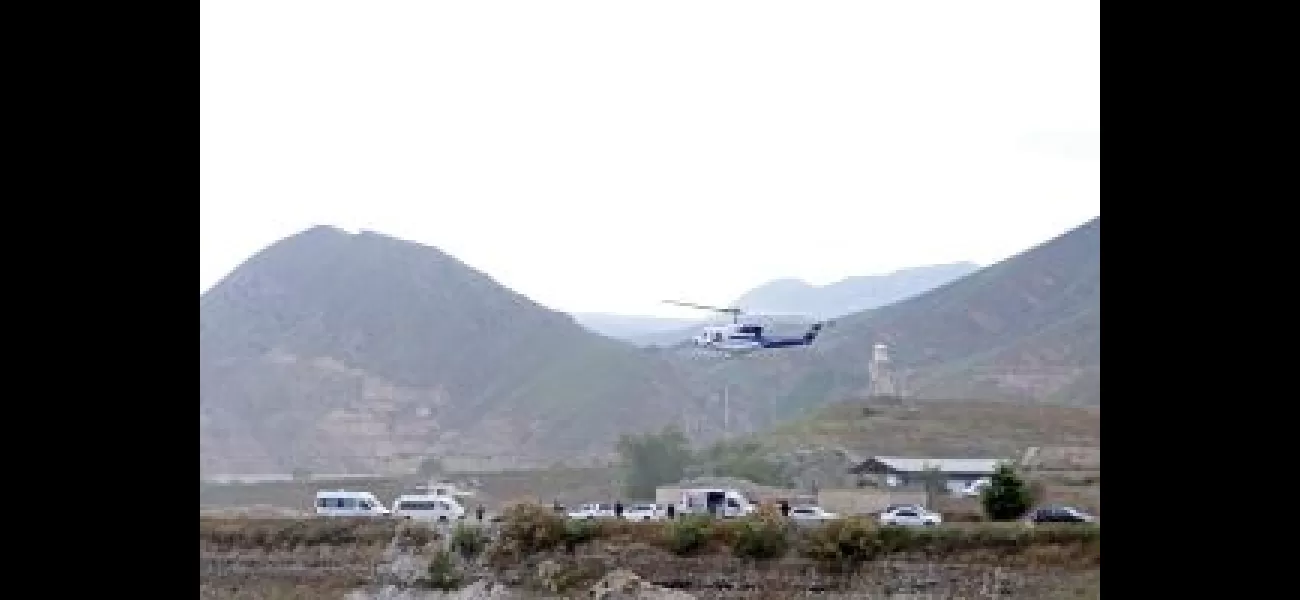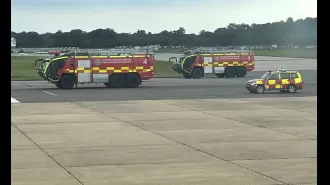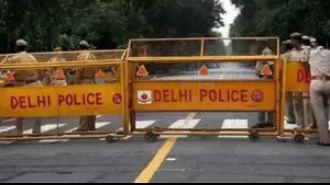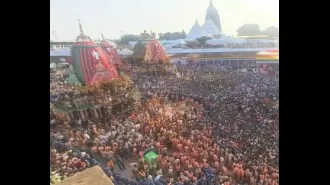Helicopter crash kills Iranian president, foreign minister and others, per state media.
Iran's president and other officials have died in a helicopter crash in a foggy, mountainous region of the country, amid ongoing tensions in the Middle East.
May 20th 2024.

The news of the helicopter crash in Iran's northwest has sent shockwaves through the Middle East, with Iranian President Ebrahim Raisi and several other high-ranking officials reported dead. The search for survivors proved to be a difficult one, as thick fog and rugged terrain made the rescue mission a daunting task. Raisi, who was 63 years old, was a prominent figure in the region and his sudden death has left many in mourning.
The timing of this tragedy is particularly poignant, as tensions in the Middle East are already high due to the recent Israel-Hamas war. Raisi, under the guidance of Supreme Leader Ayatollah Ali Khamenei, had launched a controversial drone-and-missile attack on Israel just last month. This move, along with Iran's continued enrichment of uranium, had further strained their relationship with the Western world. Furthermore, Iran's involvement in supplying drones to Russia for their war in Ukraine and arming militia groups in the region had also drawn criticism from the international community.
In addition to these political struggles, Iran has also faced internal challenges in recent years. Mass protests against the country's Shiite theocracy have erupted, with citizens expressing their dissatisfaction with the ailing economy and the lack of women's rights. This makes the loss of Raisi and his colleagues all the more sensitive for Tehran and the future of the country.
The cause of the crash is still unknown, as state media has not yet released any information. Among the dead were the Iranian Foreign Minister Hossein Amirabdollahian, who was 60 years old. The group was on their way to East Azerbaijan province when the accident occurred. Images and videos from the scene show a fire in the wilderness, which Turkish authorities believe to be the wreckage of the helicopter. The crash site, located in a steep valley in a green mountain range, was eventually found after an extensive search by soldiers.
The news of the crash has left the Iranian people in shock and mourning. Supreme Leader Khamenei has called for prayers for the victims, expressing his hope for their safe return to their loved ones. He also emphasized that the business of Iran's government will continue, as per the country's constitution. In the event of the president's death, the vice first president will take over with the assent of the supreme leader, and a new presidential election will be called within 50 days. Already, First Vice President Mohammad Mokhber has received calls from officials and foreign governments in Raisi's absence.
Raisi, a hard-liner who previously served as the country's judiciary leader, was seen as a protégé of Khamenei and many believed he could potentially succeed the 85-year-old leader in the future. In the 2021 presidential election, Raisi emerged victorious in a vote that saw the lowest turnout in the country's history. However, he is also sanctioned by the US for his involvement in the mass execution of political prisoners in 1988.
Under Raisi's leadership, Iran has faced numerous challenges and controversies, both on the domestic and international front. The country's continued enrichment of uranium and arming of proxy groups in the Middle East have caused concern among other nations. In addition, the mass protests and subsequent crackdown have highlighted the ongoing turmoil within the country. The recent death of Mahsa Amini, a woman who was detained for not wearing a hijab, sparked widespread demonstrations and criticism of the government's actions. A UN panel has found Iran responsible for Amini's death and the violent crackdown that followed the protests.
The loss of President Raisi and the other officials is a tragic event that has left a void in the political landscape of the Middle East. As the country mourns their deaths, the future of Iran and its leadership remains uncertain.
The timing of this tragedy is particularly poignant, as tensions in the Middle East are already high due to the recent Israel-Hamas war. Raisi, under the guidance of Supreme Leader Ayatollah Ali Khamenei, had launched a controversial drone-and-missile attack on Israel just last month. This move, along with Iran's continued enrichment of uranium, had further strained their relationship with the Western world. Furthermore, Iran's involvement in supplying drones to Russia for their war in Ukraine and arming militia groups in the region had also drawn criticism from the international community.
In addition to these political struggles, Iran has also faced internal challenges in recent years. Mass protests against the country's Shiite theocracy have erupted, with citizens expressing their dissatisfaction with the ailing economy and the lack of women's rights. This makes the loss of Raisi and his colleagues all the more sensitive for Tehran and the future of the country.
The cause of the crash is still unknown, as state media has not yet released any information. Among the dead were the Iranian Foreign Minister Hossein Amirabdollahian, who was 60 years old. The group was on their way to East Azerbaijan province when the accident occurred. Images and videos from the scene show a fire in the wilderness, which Turkish authorities believe to be the wreckage of the helicopter. The crash site, located in a steep valley in a green mountain range, was eventually found after an extensive search by soldiers.
The news of the crash has left the Iranian people in shock and mourning. Supreme Leader Khamenei has called for prayers for the victims, expressing his hope for their safe return to their loved ones. He also emphasized that the business of Iran's government will continue, as per the country's constitution. In the event of the president's death, the vice first president will take over with the assent of the supreme leader, and a new presidential election will be called within 50 days. Already, First Vice President Mohammad Mokhber has received calls from officials and foreign governments in Raisi's absence.
Raisi, a hard-liner who previously served as the country's judiciary leader, was seen as a protégé of Khamenei and many believed he could potentially succeed the 85-year-old leader in the future. In the 2021 presidential election, Raisi emerged victorious in a vote that saw the lowest turnout in the country's history. However, he is also sanctioned by the US for his involvement in the mass execution of political prisoners in 1988.
Under Raisi's leadership, Iran has faced numerous challenges and controversies, both on the domestic and international front. The country's continued enrichment of uranium and arming of proxy groups in the Middle East have caused concern among other nations. In addition, the mass protests and subsequent crackdown have highlighted the ongoing turmoil within the country. The recent death of Mahsa Amini, a woman who was detained for not wearing a hijab, sparked widespread demonstrations and criticism of the government's actions. A UN panel has found Iran responsible for Amini's death and the violent crackdown that followed the protests.
The loss of President Raisi and the other officials is a tragic event that has left a void in the political landscape of the Middle East. As the country mourns their deaths, the future of Iran and its leadership remains uncertain.
[This article has been trending online recently and has been generated with AI. Your feed is customized.]
[Generative AI is experimental.]
0
0
Submit Comment





